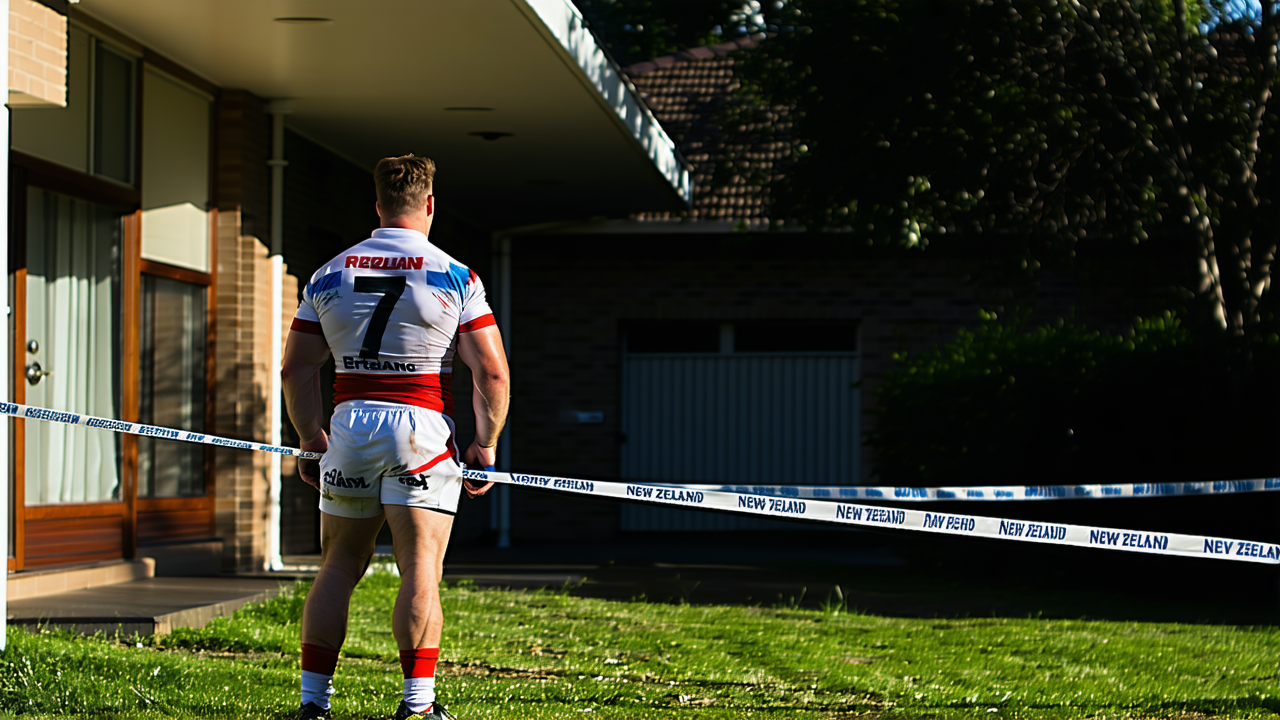Rugby Star Grant Taulafo Faces Deportation After Cocaine Arrest
Keywords: Rugby, Cocaine, Deportation, Grant Taulafo, 501 Policy, Australia, New Zealand
Back to News List
Friday, 18 July 2025
Grant Taulafo, once a rising star in the rugby world, has found himself at the center of a legal and social controversy following his arrest for delivering a package of cocaine to an undercover officer. The incident, which took place in a Sydney motel, has led to serious consequences for the former athlete, including a potential deportation under Australia's 501 policy, which targets non-citizens convicted of serious crimes.
Taulafo was arrested after he delivered a package of cocaine to an undercover officer in a Sydney motel. The package reportedly contained a significant amount of the drug, and the arrest has sparked a broader debate about the treatment of foreign nationals in Australia. Taulafo, who had previously played for the New Zealand national rugby team, had told the undercover agent he would supply another kilo of cocaine in two weeks. His actions have not only jeopardized his rugby career but also placed him on the path to deportation.
The case has drawn attention from various quarters, including former Australian Prime Minister Scott Morrison, who has spoken about the 501 policy in interviews. Morrison's approach to deporting non-citizens convicted of serious crimes has been a point of contention, particularly with New Zealand's Prime Minister Jacinda Ardern, who has expressed strong opposition to the policy.
In his interview, Morrison defended the policy, stating that it is a necessary measure to protect Australian society from individuals who have committed serious crimes. However, critics argue that the policy is overly harsh and fails to consider the circumstances of individual cases. Taulafo's case has become a focal point of this debate, as it highlights the potential consequences of the policy for individuals with strong ties to other countries.
Taulafo's legal team is currently working to challenge the deportation order, arguing that his actions were a one-time mistake and that he has shown remorse. They have also emphasized his contributions to the rugby community and his potential for rehabilitation. However, the Australian authorities remain firm in their stance, citing the severity of the crime and the need to uphold the rule of law.
The case has also raised questions about the effectiveness of current drug policies in Australia and the support available for individuals struggling with substance abuse. Advocacy groups have called for a more compassionate approach, emphasizing the importance of rehabilitation over punishment. They argue that a more holistic approach to drug offenses would not only benefit individuals like Taulafo but also reduce the overall burden on the justice system.
As the legal battle continues, the rugby community and fans around the world are closely watching the outcome. Taulafo's story has become a cautionary tale about the consequences of drug-related offenses and the potential for redemption. His case has also prompted a broader discussion about the treatment of athletes and public figures who find themselves in legal trouble.
In the end, the outcome of Taulafo's case will depend on a variety of factors, including the strength of his legal defense, the stance of the Australian government, and the support he receives from the rugby community and advocacy groups. Regardless of the final decision, his story has already sparked a much-needed conversation about drug policy, deportation, and the rehabilitation of individuals who have made mistakes.
